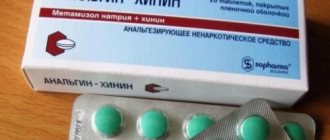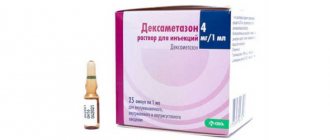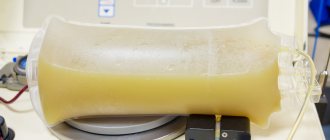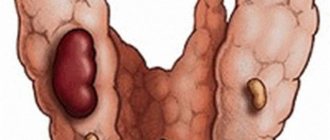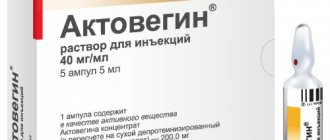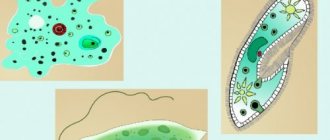List of the most effective drugs for high blood pressure
| Nonproprietary international name of the drug | Trade name of different pharmaceutical manufacturers |
| Losartan | Lozap, Lorista |
| Valsartan | Nortivan, Teveten, Nortivan |
| Indopamide | Arifon-retard, Lorvas SR |
| Hydrochlorothiazide | Hypothiazide |
| Enalapril | Enap, Berlipril |
| Captopril | Kapoten |
| Nifedipine | Cordaflex |
| Lisinopril | Diroton, Lisinoton |
| Verapamil | Finoptin, Isoptin, Flamon |
| Amlodipine | Norvasc, Amlodac, Amlocor |
| Metoprolol | Metokard, Egilok |
| Diltiazem | Cardil, Diacordin |
special instructions
Instructions for use of Capoten contain a special instructions section, which describes the following properties of the medication:
- you need to monitor your kidney function;
- a characteristic nonproductive cough may be observed, which disappears after discontinuation of ACE inhibitor therapy;
- with renal artery stenosis, the concentration of creatinine in the blood serum increases;
- severe arterial hypotension can be observed after treatment with diuretics, while on dialysis, during major operations, or the use of anesthetics;
- negatively affects the fetus during pregnancy;
- a false positive reaction may occur when testing for acetone in urine;
- affects the speed of psychomotor reactions and causes dizziness, so during therapy you should refrain from driving or driving dangerous machinery.
Anti-hypertension pills with quick effect
List of rapid-acting antihypertensive drugs:
- Furosemide,
- Anaprilin,
- Captopril,
- Adelfan,
- Enalapril.
Fast-acting drugs for hypertension
For high blood pressure, it is enough to put half or a whole tablet of Captopril or Adelfan under the tongue and dissolve. The pressure will drop in 10–30 minutes. But you should know that the effect of taking such drugs is short-lived. For example, a patient is forced to take Captopril up to 3 times a day, which is not always convenient.
The action of Furosemide, a loop diuretic, is the rapid occurrence of strong diuresis. Within an hour of taking 20–40 mg of the drug and for the next 3–6 hours, you will begin to urinate frequently. Blood pressure will decrease due to the removal of excess fluid, relaxation of vascular smooth muscles and a decrease in the volume of circulating blood.
Indications for use
Capoten for blood pressure can help dilate blood vessels, because using one tablet of the drug according to the instructions reduces blood pressure and improves blood circulation in the arteries and veins. This medicine stimulates the restoration of blood circulation in small blood vessels.
Capoten tablets
The main purpose of the drug Capoten is to prevent the active production of angiotensin, an enzyme that causes vasoconstriction and an increase in blood pressure (BP). The blocking effect of the inhibitor allows you to dilate blood vessels and remove excess fluid from the body.
The drug has an effect on the functioning of the adrenal glands, which is expressed in a decrease in the level of production of the hormone aldosterone. Pharmacodynamics of tablets - they quickly relieve preload and pressure levels in the heart (especially in the right atrium), and increase the rate of cardiac output.
Extended-release tablets for hypertension
List of long-acting antihypertensive drugs:
- Metoprolol,
- Diroton,
- Losartan,
- Cordaflex,
- Prestarium,
- Bisoprolol,
- Propranolol.
Long-acting medications for hypertension
They have a prolonged therapeutic effect and are designed for ease of treatment. It is enough to take these medications only 1 or 2 times a day, which is very convenient, since maintenance therapy for hypertension is indicated continuously until the end of life.
These drugs are used for long-term combination therapy for grade 2–3 hypertension. Features of the reception include a long-term cumulative effect. To obtain lasting results, you need to take these drugs for 3 or more weeks, so you do not need to stop taking them if your blood pressure does not drop immediately.
Side effects of antihypertensive drugs
According to numerous observations and studies in clinical practice, the difference between Capoten and Captopril lies in tolerability. Capoten has minimal negative effects on the body. It is better tolerated by older people and patients with chronic diseases of vital organs.
Side effects of Capoten (appear only in 3% of cases):
- dry cough, sore throat;
- drying of the oral mucosa;
- rapid pulse;
- dizziness;
- rash on the body.
Negative phenomena when taking Captopril often occur due to non-compliance with treatment regimens and regular overdose. The consequences of incorrect dosing can cause the following dangerous conditions:
- cardiogenic shock, up to cardiac arrest;
- dry cough, pneumonia, bronchospasm leading to suffocation;
- vomiting due to stomach irritation, the appearance of ulcers on the mucous membrane, pain in the epigastric region, inflammation of the pancreas;
- bile stagnation, jaundice, liver inflammation;
- violation of the quantitative and qualitative composition of blood;
- increasing the acidity of the body’s internal environments;
- sleep disturbance, muscle pain, blurred vision.
Mental disorders are observed - psycho-emotional stress, stress, depression, tearfulness. There have been cases of the development of drug-induced anorexia - complete lack of appetite, irreversible changes in metabolism, sudden weight loss.
Rating of tablets for high blood pressure with their descriptions
The list of antihypertensive drugs is compiled from the most effective with a minimum of unwanted effects to drugs with more frequent side effects. Although in this regard everything is individual, it is not in vain that antihypertensive therapy must be carefully selected and, if necessary, adjusted.
Losartan
A drug from the sartan group. The mechanism of action is to prevent the powerful vasoconstrictor effect of angiotensin II on the body. This highly active substance is obtained by transformation from renin produced by the kidneys. The medicine blocks receptors of the AT1 subtype, thereby preventing vasoconstriction.
Systolic and diastolic A/D decreases after the first oral administration of Losartan, at most after 6 hours. The effect lasts for a day, after which you need to take the next dose. Persistent stabilization of blood pressure should be expected after 3–6 weeks from the start of treatment. The drug is suitable for the treatment of hypertension in diabetics with diabetic nephropathy - damage to blood vessels, glomeruli, and kidney tubules due to metabolic disorders caused by diabetes.
| pros | Minuses |
| Pronounced and persistent antihypertensive effect | More expensive drug compared to, for example, atenolol |
| Well tolerated with minimal or no side effects | Undesirable consequences: headache, dizziness, heart rhythm disturbances, dryness and nasal congestion, unreasonable weakness. Frequency of occurrence of effects – 1%, sometimes a little more |
| Convenience of administration (only once a day with a gradual increase in dose from 50 mg to 100 mg per day until stable stabilization of A/D levels) |
What analogues does it have:
- Blocktran,
- Lozap,
- Presartan,
- Xartan,
- Losartan Richter,
- Cardomin-Sanovel,
- Vasotens,
- Lakea,
- Renicard.
Valsartan, Eprosartan, Telmisartan are drugs from the same group, but Losartan and its analogues are more productive. Clinical experience has shown its high effectiveness in eliminating elevated A/D even in patients with complicated arterial hypertension.
Lisinopril
Belongs to the group of ACE inhibitors. The antihypertensive effect is observed within 1 hour after taking the required dose, increases in the next 6 hours to a maximum and lasts for 24 hours. This is a drug with a long-term cumulative effect. Daily dosage – from 5 to 40 mg, taken 1 time per day in the morning. When treating hypertension, patients notice a decrease in blood pressure from the first days of taking it.
| Action | Possible side effects |
| Stably maintains the A/D level at normal levels | Dry cough |
| Increases myocardial tolerance to stress in heart failure | Dry mouth |
| Prevents the progression of myocardial enlargement and increase in the volume of the left ventricular heart chambers in patients with severe hypertension or those who have had a heart attack | A/D drop below normal |
| Good for treating high blood pressure in people with heart failure, diabetes mellitus (diabetic nephropathy), heart attack without a history of hypotension | Sweating |
| Dizziness |
List of analogues:
- Diroton,
- Renipril,
- Lipryl,
- Lisinovel,
- Dapril,
- Lisacard,
- Lisinoton,
- Sinopril,
- Lysigamma.
Renipril GT
This is an effective combination drug consisting of enalapril maleate and hydrochlorothiazide. In combination, these components have a more pronounced hypotensive effect than each individually. The pressure decreases gently and without loss of potassium by the body.
| pros | Contraindications |
| High efficiency | Allergy to the active substances of the composition |
| Well tolerated by most hypertensive patients | Pregnancy |
| The maximum concentration of the drug in the blood is reached after 2 hours and remains throughout the day. | Primary hyperaldosteronism |
| Addison's disease | |
| Regression of hypertrophy with unloading of the left ventricle of the heart | Renal artery stenosis |
What are the analogues of the product:
- Berlipril Plus,
- Enalapril N,
- Co-renitek,
- Enalapril-Acri,
- Enalapril NL,
- Enap-N,
- Enafarm-N.
Captopril
Perhaps the most common drug from the group of ACE inhibitors. Intended for emergency assistance to relieve a hypertensive crisis. It is undesirable for long-term treatment, especially in elderly people with atherosclerosis of cerebral vessels, since it can provoke a sharp decrease in pressure with loss of consciousness. Can be prescribed together with other hypertensive and nootropic drugs, but under strict A/D control.
| pros | Minuses |
| Quickly normalizes A/D | Frequent use (up to 4 times/day) |
| Improves blood supply to the heart muscle during ischemia | Contraindications:
|
| Reduces platelet aggregation - blood cells sticking together to form a blood clot | Undesirable side effects: |
| With long-term use, it can reduce the severity of myocardial hypertrophy | Use with caution for kidney diseases, systemic autoimmune diseases |
| Cheapness |
List of analogues:
- Kopoten,
- Kaptopres,
- Alkadil,
- Katopil,
- Blockordil,
- Captopril AKOS,
- Angiopril,
- Reelcapton,
- Kapofarm.
Arifon-retard (indopamid)
Diuretic and antihypertensive drug from the group of sulfonamide derivatives. In complex therapy for the treatment of arterial hypertension, it is used in minimal doses that do not have a pronounced diuretic effect, but stabilize blood pressure throughout the day. Therefore, when taking it, you should not expect an increase in diuresis; it is prescribed to lower blood pressure.
| pros | Contraindications and special instructions |
| Ease of use (take 1 time per day in the morning before meals) | Prohibited for hypokalemia, severe renal failure or serious liver dysfunction, allergy to the active ingredient of the drug |
| One of the safest remedies for high blood pressure | Not recommended for people with lactose intolerance |
| Harmless for people with endocrine disorders (diabetes, obesity), because it does not affect the level of lipids and glucose in the blood | |
| Has a minimum of side effects and is well tolerated by almost all patients | |
| Reduces left ventricular hypertrophy | |
| Affordable price |
Analogues:
- Indopamide,
- Acripamide,
- Perinid,
- Indapamide-Verte,
- Indap,
- Acripamide retard.
Veroshpiron
Potassium-sparing diuretic. Take 1 to 4 times a day in courses. It has a pronounced diuretic effect, but does not remove potassium from the body, which is important for normal heart function. Used only in combination therapy for the treatment of arterial hypertension. If the dose prescribed by the doctor is followed, it does not cause side effects, with rare exceptions. Long-term treatment in large dosages (more than 100 mg/day) can lead to hormonal disorders in women and impotence in men.
Contraindications
There are many of them. The drug, while highly effective, has just as many reasons not to take it. They are due to the effects of use.
Capoten should not be drunk in the following cases:
- Pregnancy. Regardless of the moment of gestation. The drug provokes a change in the nature of hemodynamics.
Blood flow is disrupted. This causes insufficient provision of oxygen and nutrients to the child.
And changes in blood pressure and heart rate can result in deadly complications for the mother herself.
Although formally the risks are lower in the 2-3 trimester, they do not go away. They just take on a different appearance. Deviations in the physical or mental development of the child and others.
- Breastfeeding period. The drug passes into milk and is passed on to the newborn. Until the end of lactation, Kapoten is strictly prohibited.
- Individual intolerance to the main or other substances. An allergic reaction to the drug is extremely rare.
- Polyvalent (multiple) immune response to drugs. That is, the inability to take a whole group of drugs, or even several. This problem rarely occurs.
- Childhood. Under 18 years of age you should not take Capoten. No specialized studies have been conducted on the issue of efficacy and safety in young patients.
- Kidney damage, in which there is a pronounced decompensated insufficiency of their work. If the condition is normalized and filtration is permanently restored, the drug can be used. The same goes for the liver.
- Stenosis (narrowing) of the renal arteries. In order not to provoke emergency conditions associated with the impossibility of blood flow in the paired organ. After correction, you can resort to using the medicine.
- Excessive concentration of potassium in the bloodstream. If we consider the problem more broadly, it is electrolyte imbalance.
- Aortic stenosis, because after using Capoten, if adequate blood flow in a large circle is impossible, overload of the left ventricle will occur. How this will end is difficult to predict. Therefore, patients with heart and vascular defects must first be examined, then select therapy under the supervision of a doctor.
- Recent kidney transplant. Until the body adapts to new conditions. It may take from a month to six months or even more. The question of the possibility of using Capoten is decided by the doctor.
- Tendency to lower blood pressure. Hypotension. A low blood pressure level or instability of indicators is a contraindication for the use of the medicine. Because a sharp jump down, a collaptoid state or a stroke with a fatal outcome is possible.
There are also a huge number of so-called risk factors that influence and respond to the Capoten effect.
If there is at least one of these, you need to carefully monitor the condition when using the medicine. This includes a lot of disorders: from autoimmune pathologies to old age.
Combination drugs for high blood pressure
To achieve maximum hypotensive effect and ease of administration, combination drugs have been developed, consisting of several optimally selected components. This:
- Noliprel (indopamid + perindopril arginine).
- Aritel plus (bisoprolol + hydrochlorothiazide).
- Exforge (valsartan + amlodipine).
- Renipril GT (enalapril maleate + hydrochlorothiazide).
- Lorista N or Lozap plus (losartan + hydrochlorothiazide).
- Tonorma (triamterene + hydrochlorothiazide).
- Enap-N (hydrochlorothiazide + enalapril) and others.
Combination use of several drugs for high blood pressure
Combination therapy is the most effective in the treatment of arterial hypertension. The simultaneous use of 2-3 drugs, always from different pharmacological groups, helps to achieve lasting positive results.
How to take high blood pressure pills in combination:
| Pharmacological group | Combination of drugs |
| Diuretic + beta blocker | Chlorthalidone + atenolol hydrochlorothiazide + bisoprolol |
| ACE inhibitor + diuretic | Hydrochlorothiazide + captopril Indopamide + perindopril |
| Diuretic + sartan | Losartan + hydrochlorothiazide Valsartan + hydrochlorothiazide |
| β-blocker + calcium channel blocker from the dihydropyridine group | Metoprolol + felodipine |
| ACE inhibitor + calcium antagonist | Amlodipine + benazepril Enalapril + diltiazem |
Chemical composition of Capoten and Captopril
Captopril is an active substance of synthetic origin, on the basis of which antihypertensive drugs are made. It is a white powder in the form of microcrystals with a faint sulfur odor.
Capoten and Captopril are the same medicine from the group of ACE inhibitors, chemical compounds for lowering blood pressure, treatment and prevention of chronic heart and kidney failure. Affects an extracellular enzyme that regulates blood pressure.
Captopril tablets are the cheapest option available to all social classes. Preferential categories of patients receive the drug in social pharmacies free of charge according to a prescription prescribed by a physician.
Kapoten is a trademark (commercial name). Produced on the basis of captopril. − chemical and pharmaceutical plant in Staraya Kupavna, Moscow region, Russia. Auxiliary components in the composition of the drugs:
- cellulose - stabilizer;
- lactose - filler;
- stearic acid - forms the structure;
- starch is a filler for tablet forms.
Different manufacturers may use other additional substances - povidone (a detoxifier, complexing agent), colloidal silicon dioxide (promotes rapid absorption), calcium stearate (ensures tablets are smooth and easy to swallow).
